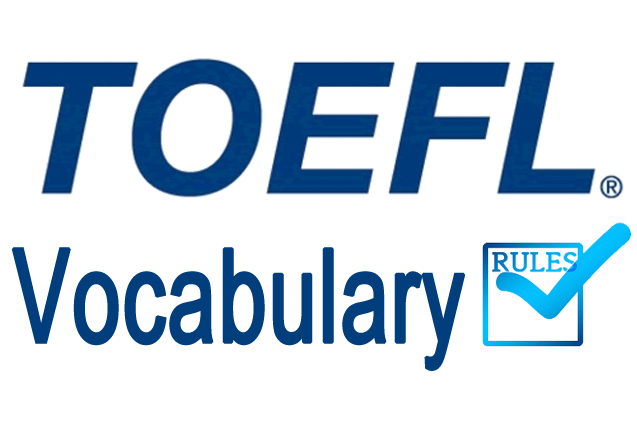TOEFL VOCABULARY RULES
We get a lot of questions about how to score well on the independent essay in terms of vocabulary. Vocabulary is hard, but there are four golden rules.
Rule 1: Do Not Repeat Words
You should not repeat words too many times. I always say that you will lose points if you repeat a word more than two or three times in the same essay. If you are writing an essay about children, don’t repeat the word “children” ten times. Use synonyms like “young people” or “youth” or “teenager” or “adolescent.” Sometimes it will be impossible to avoid this problem, but do your best.
Rule 2: Don’t Repeat Words from the Question Prompt
According to ETS publications, you will not get vocabulary credit for using words that appear in the question prompt. This means that you should avoid leaning too heavily on them in your essay. If the question prompt is about “coworkers,” you should write your essay about “colleagues.” You don’t have to completely avoid repeating words from the prompt, but keep this golden rule in mind.
Rule 3: Avoid Vague Words… Be Specific!
According to ETS publications, each question prompt is assigned a list of “high scoring” words that students will be rewarded for using in their essays. Basically, these are words that were commonly used in essays that received high scores the last time the prompt was used. You have no way of knowing what these words are, but by expanding the range of your vocabulary, you are more likely to “hit” them. Moreover, you should try to avoid using boring words like “thing,” “good,” “bad,” “small” and “big.” These words will never be on the list, so you should replace them with something more specific to the topic you are writing about.
Since the essay questions often revolve around the same kinds of topics, you might be able to meet this requirement by studying some targeted vocabulary lists. For example:
I don’t think you should waste too much time studying vocabulary lists, but it could be worthwhile.
Rule 4: Use Discourse/Transitional Words
You need to use Discourse Words. These are also referred to as Transitional Words by many teachers. They include things like:
- Firstly
- Secondly
- Moreover
- Therefore
- As a result
- For this reason
There are many more of these (link). Basically, they serve to link ideas together in a sophisticated way. The e-rater is programmed to look for these. If you don’t use these you will get a low score, even if your grammar is otherwise strong.
Final Words
That’s about it for vocabulary. Keep in mind that this is a general guide. You will also get points for using “hard” words, but sadly the acquisition of those takes years and there are no shortcuts. I just hope that the above tips help you avoid common problems and allow you to score better than you otherwise would.

